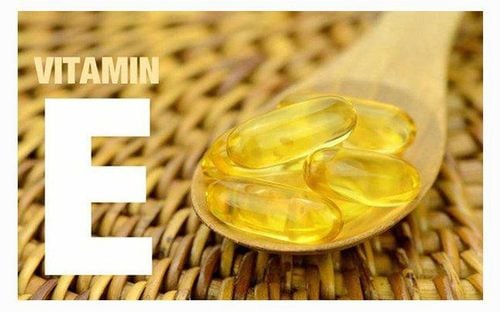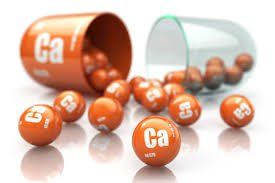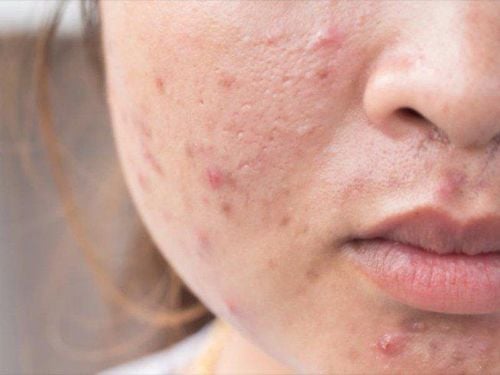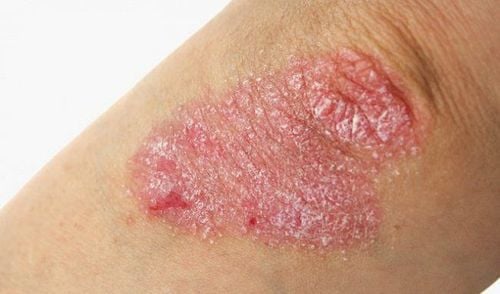This is an automatically translated article.
The article was professionally consulted with Specialist Doctor I Nguyen Thanh Van - Doctor of Internal Medicine - Dermatology - Department of Medical Examination & Internal Medicine - Vinmec Phu Quoc International General Hospital.Vitamins are not only necessary for health, but they are also very effective in beautifying the skin. The proper vitamin supplementation not only helps keep the body healthy, but also prevents and slows down the aging process of the skin.
1. 4 best vitamins for skin
1.1 Vitamin D Vitamin D is normally made when the skin absorbs sunlight. Vitamin D is then absorbed by the liver and kidneys and transported throughout the body to help make healthy cells. Vitamin D plays an important role in the formation of skin tone.Calcitriol is a compound of man-made vitamin D. Calcitriol is effective in the treatment of psoriasis. Many studies have shown that using calcitriol reduces inflammation and skin irritation in people with psoriasis, and reduces complications of the disease.
The recommended daily amount of vitamin D is 600 IU/day. This amount can be increased for pregnant women, people > 70 years old or people with vitamin D deficiency.
Ways to increase vitamin D:
Use foods rich in natural vitamin D, such as: Fish salmon, tuna and cod, cereal, orange juice, yogurt. Supplement vitamin D with oral tablets

Phụ nữ có thể bổ sung vitamin D từ cá hồi
Vitamin C has anticancer (antioxidant) properties; It also plays an essential role in collagen synthesis to keep skin healthy.
You can supplement vitamin C by:
Vitamin C tablets: help enhance the effectiveness of sunscreen, reduce cell damage as well as heal the body's wounds. In addition, vitamin C can also help reduce the appearance of wrinkles; Improves and prevents dry skin. Vitamin C can be obtained through diet and food. The recommended daily intake of vitamin C is 1,000 mg. Some foods contain a lot of vitamin C: Citrus fruits (oranges, lemons, grapefruits), strawberries, broccoli, spinach, ... Cosmetics containing vitamin C: improve the condition of dry, red skin, have wrinkles and brown spots 1.3.VitaminE Like vitamin C, vitamin E is an antioxidant. Its main function for the skin is to protect the skin from sun damage; Prevents brown spots and wrinkles. Vitamin E topical will absorb harmful UV rays, reducing the effects of UV rays on the skin.
Normally, the body produces vitamin E through sebum from the pores. In a balanced state, sebum helps keep the skin stable and prevents dryness, reducing skin inflammation. Vitamin E is found in skin care cosmetics, but the effect of topical vitamin E is less than oral form.
Some ways to increase the amount of vitamin E for the body:
Eat nuts such as: Almonds, hazelnuts and sunflower seeds. Take multivitamins or vitamin E tablets. Cosmetics containing vitamins E and C at the same time (helps to increase skin protection)

Vitamin E là một chất chống oxy hóa giúp làn da chống lại các tác nhân từ bên ngoài
The basic functions of vitamin K also help some skin conditions, such as: stretch marks, dilated capillaries, scars, brown spots, dark circles...
Certain foods are rich in vitamin K include: Kale, spinach, lettuce, cabbage, green beans...
Adults need 90-120 ug vitamin K per day.
2. The role of vitamins in skin health
Vitamins are essential for the health and function of the body. Vitamin deficiencies can cause adverse effects on the skin. Because vitamins C and E play an important role in protecting the skin from the sun, a deficiency in either of these vitamins can increase the risk of skin damage including skin cancer.Skin care is an essential part of an overall wellness regimen. To keep your skin healthy, limit your exposure to harmful ultraviolet (UV) rays and wear sunscreen when you're exposed to sunlight. You should talk to your doctor before taking these vitamins to be able to promote their effects in the process of taking care of and protecting your health.
Usually, vitamins are provided through a healthy diet. A number of blood tests will help detect which vitamin you are deficient in. Oral vitamin supplements should be consulted with a doctor or dietitian first to avoid overdose.

Vitamin có vai trò quan trọng đối với làn da nói riêng và sức khỏe nói chung
Please dial HOTLINE for more information or register for an appointment HERE. Download MyVinmec app to make appointments faster and to manage your bookings easily.
Reference source: healthline.com












